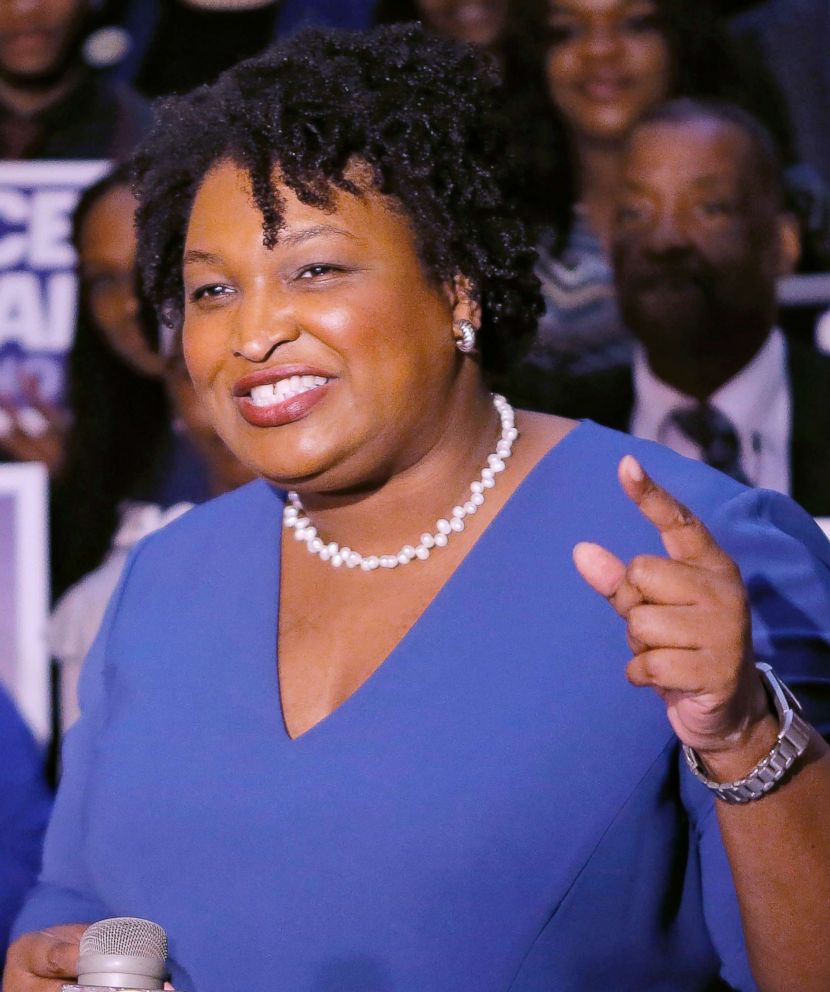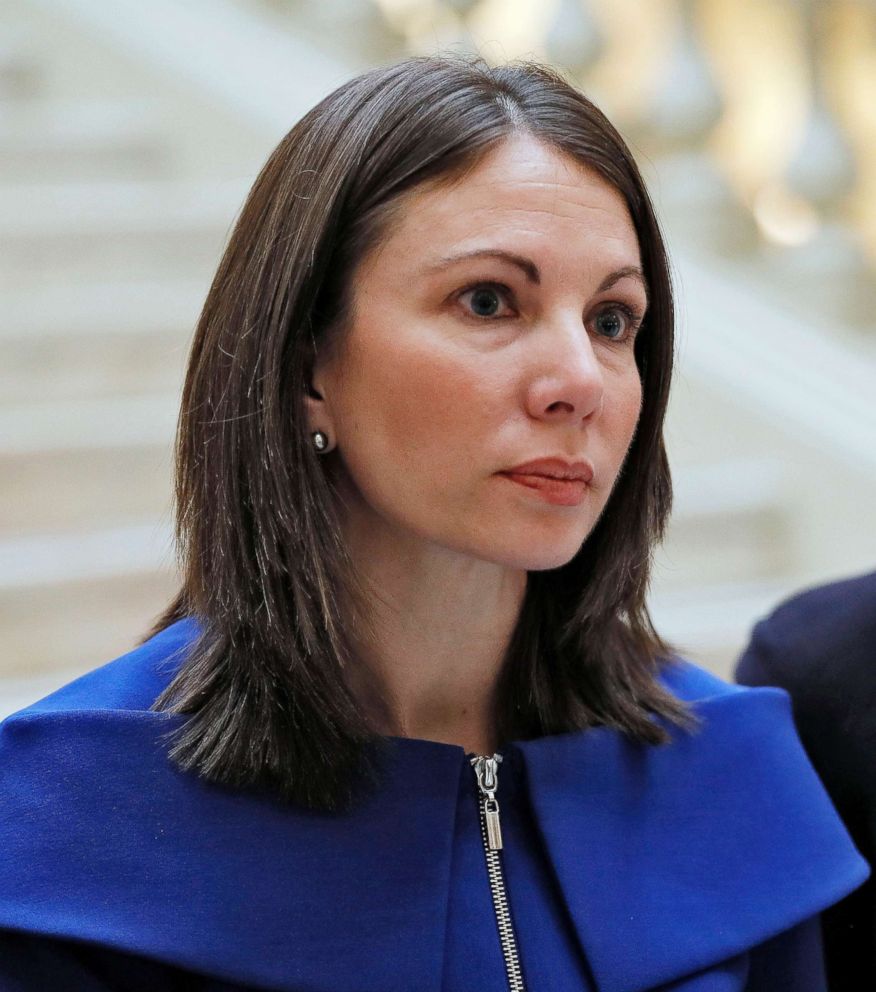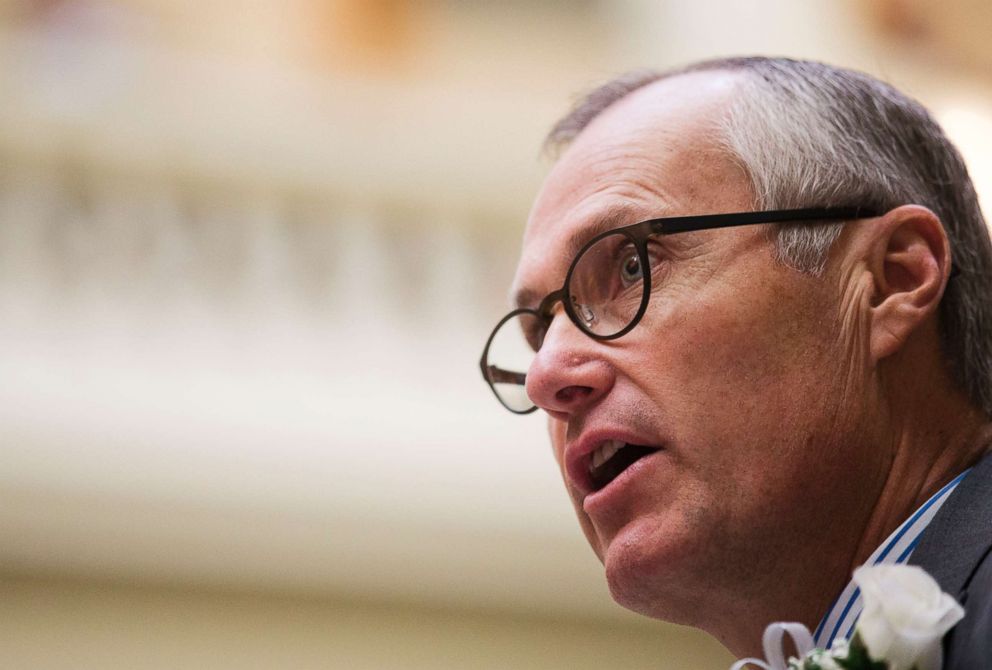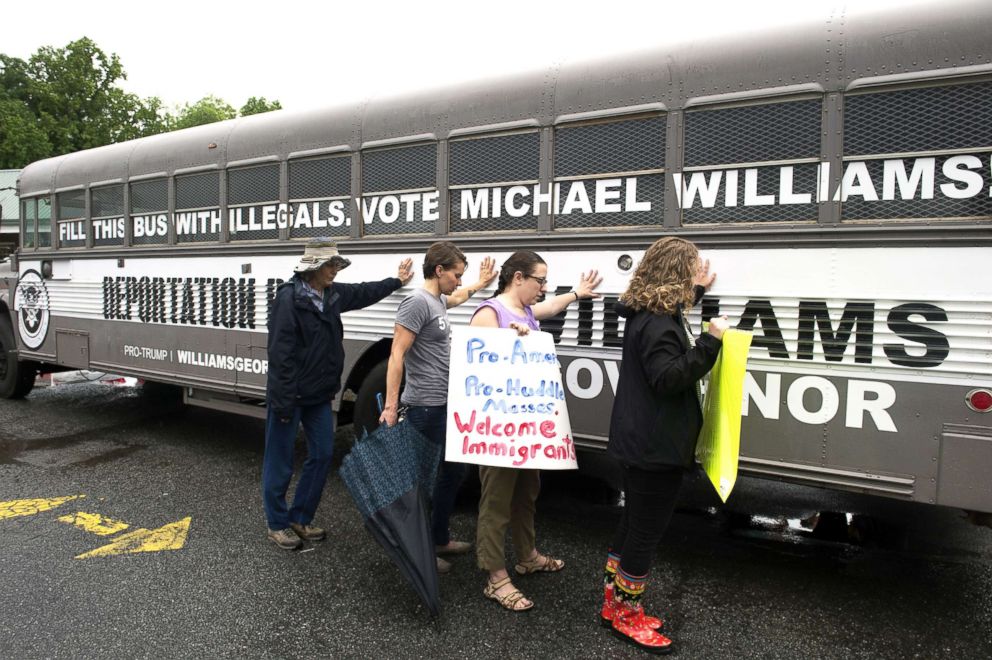In Georgia's governor's race, a test of limits for both parties
Candidates have lined up to replace the current and outgoing Republican governor
Stacey Abrams reached out to Senator Bernie Sanders about an endorsement from the progressive Vermont independent in the high-profile, high-stakes Georgia gubernatorial race, aides to the senator told ABC.
So the two teams got the two politicians on the phone.
Last week, Abrams and Sanders spoke directly, and during the course of their call, the progressive Vermont Independent decided to lend his support and get involved in the race.
Seeking the senator’s endorsement was an interesting and perhaps risky move for Abrams, an African American woman and Democrat running for governor in Georgia. Republicans have held the state’s governor’s office since 2003.
“It came down to the issues, like it always does with him,” Arianna Jones, senior vice president of public relations at Revolution Messaging, and Sanders’ former deputy communications director told ABC News. Issues like universal per-kindergarten and automatic voter registration, which Abrams is advocating, put Sanders over the edge.
Instead of zeroing in on swing voters or moderate independents in the southern state, Abrams instead has run, unabashedly, as a liberal during the primary race and made the argument that bold policies proposals and grassroots energy might bring out enough Democrats in the state to flip the seat.

It is a theory her team can test if she makes it to the general election.
Seven candidates in total, from both parties, have lined up to replace the current and outgoing Republican Governor Nathan Deal.
As a result of the competitive primary races, contenders on both sides have had tried to outdo each other, and, in some cases have pulled to extremes in order get a leg up with party faithful.
Perhaps even more than in other places around the country, the wide range of personalities competing in this races means that the person emerging from the primaries to represent the two parties in November could make all the difference.
On the Democratic side: a battle between two Staceys (yes, both Democratic candidates are women, named Stacey) has becomes a test of ideology and electability in this conservative state.
Sanders endorsed this week. California Senator Kamala Harris did earlier this month.
Several leading national progressive organizations, excited about the prospect of an African-American woman leading in the south, have endorsed Abrams too. She would make history as the first African American female to lead the state, but her Democratic opponent, Stacey Evans, would make history too.
The state has only ever had male governors.
Evans, a lawyer and former state senator, is also running as a progressive and has specifically zeroed in on supporting the state’s children and college scholarship programs.

Activists following the race closely expect it to be close. On the national level, some in the party worry that the tough primary could hurt either of the women’s chances in November.
“If all you care about is picking sure winners, thankfully the Supreme Court ruled to legalize sports betting this week, so there will be plenty of opportunities for that in the near future,” Ari Rabin-Havt, senior advisor to Sen. Sanders told ABC News, when asked about what the political fallout may be for his brand if Abrams loses the primary or the general.
There has been some hand-wringing by Democrats, too, that Abrams may be too progressive and too risky a pick.
Spokesperson for MoveOn, a grassroots group that endorsed Abrams early on, argued the opposite. "First, I am not sure being a progressive is a liability,” Karthik Ganapathy told ABC News over the phone.
“To win you need your supporters to be really energized. Whipped up into door knocking frenzy,” he said. “She is going to do just as well as any Democrat against a Republican nominee. She fires up the base in the way a Democratic candidate would need to do to win.”
The differences between candidates in the two parties are stark. Five men are vying for the Republican nomination.
Georgia’s lieutenant governor, Casey Cagle, has long been deemed the front-runner, but he’s running in a crowded pool that’s made the possibility of a runoff election more likely. In many ways their race has become a competition to prove further and more steadfast loyalty to President Donald Trump.
Cagle, who has shaped his campaign around family values and growing up with a single mother, also focuses on his decades-long background in business. But Cagle is not a political outsider — he was elected to the state senate in 1994 and became Georgia’s first Republican lieutenant governor in 2006.

In an era where the president criticizes establishment politicians and the “swamp,” Cagle’s campaign manager Scott Binkley is quick to separate national politics from Georgia.
“Where we’ve seen that play out is in D.C., in federal races,” Binkley told ABC News over the phone. “Our environment here in Georgia is not the national environment.”
Cagle certainly has name recognition in Georgia, but he also made himself known on a national level in late February.
In the midst of boycotts led by victims of the shooting at a high school in Parkland, Florida, where 17 people were killed, Delta airlines announced it would stop allowing discounts for NRA members. Cagle, the only Republican running with the endorsement of the National Rifle Association, tweeted that he would “kill any tax legislation that benefits Delta unless the company changes its position and fully reinstates its relationship with NRA.”
“Corporations cannot attack conservatives and expect us not to fight back,” the lieutenant governor tweeted. Delta is headquartered in Atlanta.
Cagle relays messages in line with Trump — calling for troops along the border and disavowing sanctuary cities — but the frontrunner hasn’t chosen to go as far as his opponents, who have released a slew of pointed, pro-Trump campaign ads. In that way, the race may lend insight into how much of Trump voters expect in Republican candidates.
But Casey’s campaign manager wouldn’t call the ads “Trumpian.”
“I don’t think the word Trumpian is the right word. I would call it hot air and gimmicks, and Casey's conservative results trump the hot air and gimmicks,” he said during an interview this week. He expects what he called “election year antics” to make either of the other candidates far less likely to win a general election, he said.
In one, former State Sen. Hunter Hill, a veteran, beats men wearing business suits on a military-style obstacle course to make a point about draining the swamp.
In another, State Sen. Michael Williams shows his campaign bus, which he replaced with an outfitted school bus that he calls a “deportation bus.” The back of the bus warns, “murderers, rapists, kidnappers, child molesters and other criminals on board.”

In interviews, he's said he'll fill the bus with “illegals” and “take them back to where they came from,” but he later clarified that he's not actually attempting to deport anyone. Instead, he said he's attempting to bring awareness and “hold people accountable for breaking the law.”
One of his campaign platforms is to implement statewide a program that allows U.S. Immigration and Customs Enforcement to work with local authorities — a challenge to sanctuary cities that he toured on his deportation bus in the days leading up to the primary.




